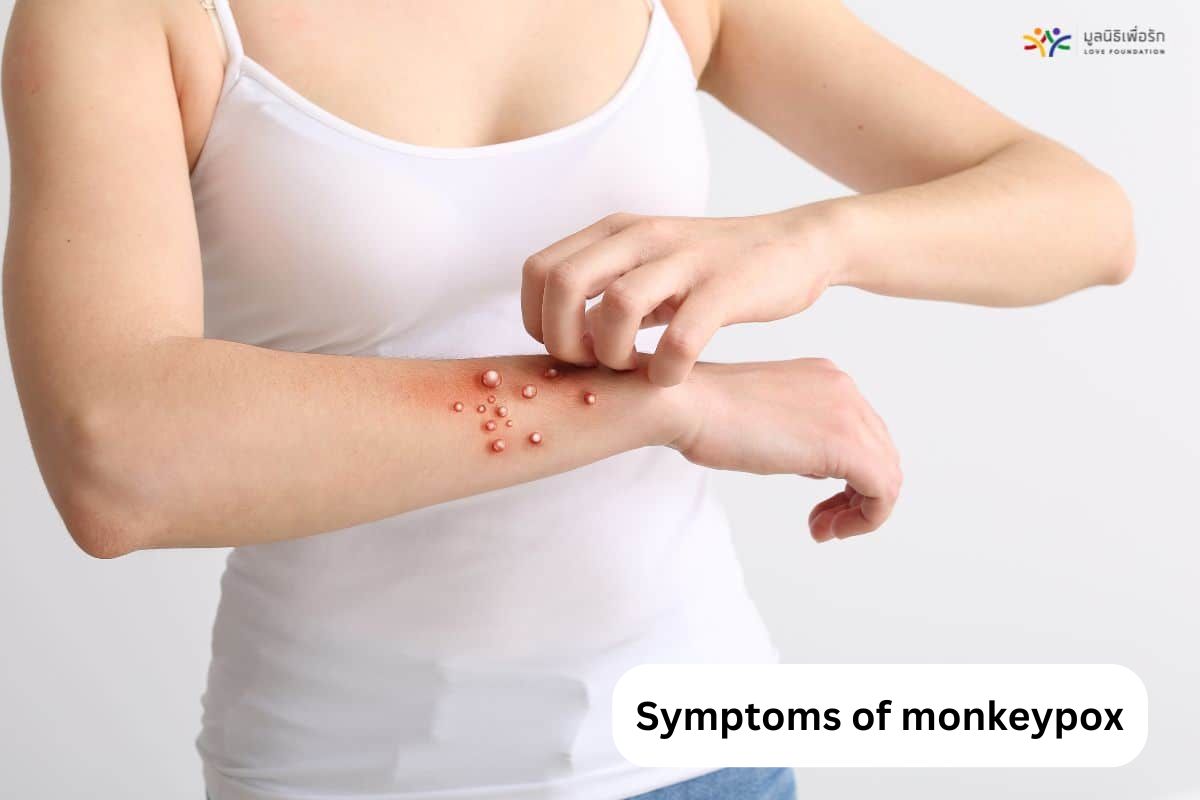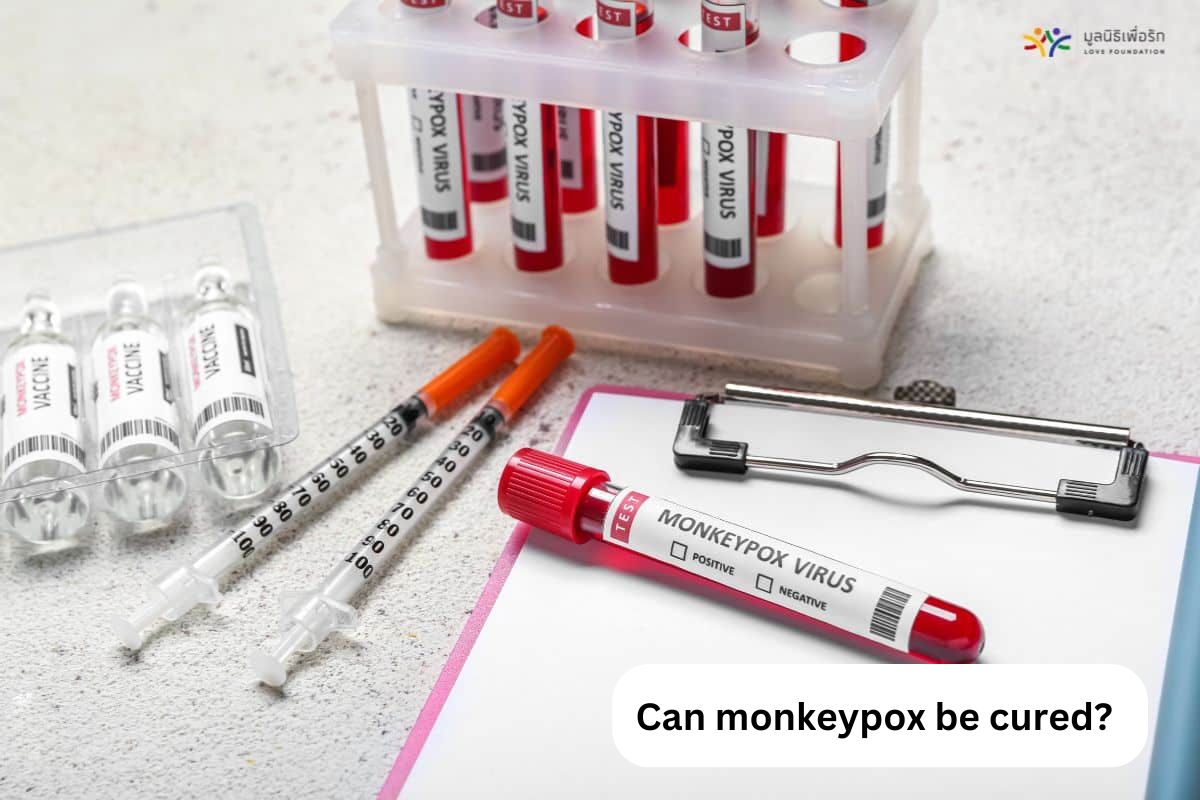Monkeypox was first found in humans in 1970 in Congo, Africa. Most of the outbreaks are in West and Central Africa. Monkeypox is a disease that many people are interested in and very worried about at present. Therefore, there are many questions and answers that people are curious about. Having the right knowledge and understanding is important. This article compiles Q&A about monkeypox so that we can prepare to deal with it without panicking.
Q: What is monkeypox?
A: Monkeypox is a disease caused by the Orthopoxvirus, a virus in the same group as the smallpox virus. This type of virus is found in many animals, especially monkeys and rodents such as squirrels, wild rats, etc. Monkeypox is not a new disease but has been prevalent for more than 20 years.
Q: How is monkeypox transmitted?
A: Monkeypox enters the body through cracks in the skin, respiratory system, or through the eyes, nose, or mouth. Q&A about monkeypox People can contract this disease from direct contact with the blood, secretions, or pustules of infected animals. Or from being bitten by an infected animal or from eating meat containing the virus that has not been cooked properly.

Q: What are the symptoms of monkeypox?
A: Monkeypox has an incubation period of about 7-14 days or may be as long as 21 days. Patients will start to have the following symptoms:
- High fever
- Headache
- Body aches
- Fatigue
- Swollen lymph nodes
After that, the symptoms will gradually disappear as dry skin flakes. Patients can recover from the disease within 2-4 weeks.
Q: How can I prevent monkeypox?
A: Prevention of monkeypox can be done by taking care of your own hygiene Q&A about monkeypox as follows:
- Avoid eating undercooked meat.
- Have safe sex by using condoms every time.
- Wash your hands regularly with soap, clean water and alcohol.
- Avoid contact and close contact with wild animals or animals that are sick or dead.
- Try not to be close and share things with others, especially those who are at risk of monkeypox.
- If traveling abroad, you must be screened and monitored for symptoms for 21 days.
- Clean your house and things in the house regularly, especially on surfaces that are frequently touched.

Q: Can monkeypox be cured?
A: Monkeypox treatment is currently supported by symptoms. There is no standard drug for specific treatment. However, there is consideration of using antiviral drugs used to treat smallpox to treat monkeypox in high-risk patients or patients with severe symptoms, which may require further study and development of appropriate treatments in the future.
Q: Is it true that being vaccinated against smallpox can prevent monkeypox?
A: People who were vaccinated against smallpox or smallpox in the past have immunity that can prevent monkeypox by up to 85%.
Q: Can monkeypox recover on its own?
A: Monkeypox can be cured on its own once contracted. It is not serious enough to cause death. It takes about 2-4 weeks to recover from the disease. There are antiviral drugs for smallpox and monkeypox that can cure the disease.
Q: Is there a vaccine to prevent monkeypox?
A: There is a vaccine to prevent monkeypox. The vaccine used to prevent smallpox can also be used to prevent monkeypox.
Q: Who is at high risk of contracting monkeypox?
A: Those at high risk include those who have close contact with patients, medical personnel, and those who have been exposed to infected animals.
Q: Can monkeypox be transmitted from animals to humans?
A: Yes, monkeypox can be transmitted from animals to humans, especially from infected rodents.
Q: Does monkeypox have a high mortality rate?
A: The mortality rate from monkeypox is relatively low, typically around 1-10%, depending on the strain of the virus.
Q: Is monkeypox as contagious as COVID-19?
A: No, monkeypox is not as contagious as COVID-19 because close contact is required to be transmitted.
Q: Can monkeypox be sexually transmitted?
A: Yes, having sex is considered close contact, which can lead to the transmission of monkeypox.
Q: Does wearing a mask help prevent monkeypox infection?
A: Wearing a mask may help reduce the risk somewhat. But the most important prevention is to avoid close contact with sick people.
Q: Is there a specific treatment for monkeypox?
A: There are some antiviral drugs that can be used to treat monkeypox, such as tecovirimat, but most treat the symptoms.
Q: Can monkeypox be transmitted through the air?
A: Airborne transmission is possible, but it is not the main method of transmission. Most infections occur through close contact.
Q: Can people who have had monkeypox get reinfected?
A: The chances of getting reinfected are very low, as the body builds immunity after recovering from the disease.
Q: Can cleaning and disinfecting eliminate monkeypox virus?
A: Yes, cleaning with a general disinfectant can effectively eliminate monkeypox virus on surfaces.
Q: Can monkeypox be transmitted through sharing objects?
A: Yes, sharing objects with sick people, such as clothing, bedding, or containers, can lead to infection.
Q: How long does monkeypox take to cure?
A: It usually takes about 2-4 weeks, depending on the severity of the symptoms and response to treatment.
Q: How does monkeypox affect the immune system?
A: Monkeypox can temporarily weaken the immune system, making people more susceptible to other infections.
Q: Is monkeypox screening available at airports?
A: Screening may be available in some countries, but it is not a primary measure of disease control due to the long incubation period.
Q: Are people with underlying medical conditions at increased risk of monkeypox?
A: Yes, people with underlying medical conditions, especially immune-related conditions, may be at higher risk of severe symptoms.
Q: How should the body of a person who has died from monkeypox be handled?
A: Extra care must be taken, with funeral directors wearing protective clothing and following strict infection control guidelines.
Q: Does monkeypox affect pets?
A: Some pets, such as dogs, cats, and rodents, can be infected with monkeypox, but infections in pets are not common.
Q: Have there been any reports of long-term side effects of monkeypox?
A: Long-term side effects such as scarring, loss of vision (if the infection is in the eye), or mental health problems are possible, but more research is needed.
Q: What precautions should be taken when traveling to countries where monkeypox is endemic?
A: Avoid contact with wild animals. Especially rodents and monkeys, maintain personal hygiene and avoid close contact with people who have symptoms similar to monkeypox.
How are you with the Q&A about monkeypox?
I hope it will be of some use to you.
